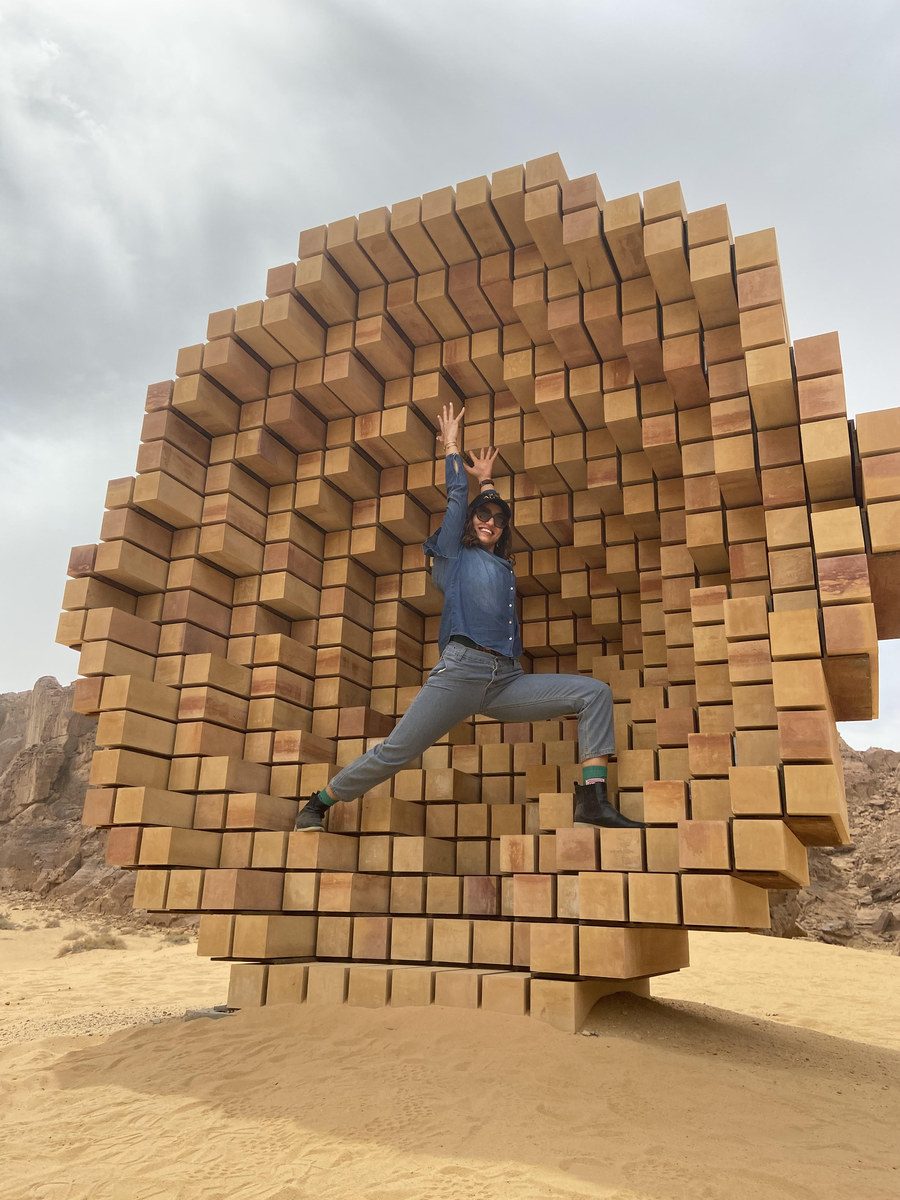JEDDAH: Yoga is gaining popularity as a fitness trend in Saudi Arabia, and a doctor specializing in preventive medicine and public health believes it is as important as any medication to improve the quality of our lives.
Shaikhah Alorf said that as a preventive physician and yoga instructor, she appreciates the power of lifestyle, movement and mind-body practices, such as yoga, which “bring greater balance into our lives and improve our health.”
Alorf began practicing yoga during the coronavirus pandemic. “During quarantine I was struggling with all what was happening in the world, and I found peace in yoga,” she said.
“I was in my second year of the Saudi Board of Preventive Medicine, preparing for an important exam and working through the pandemic. This created a lot of anxiety and stress, and affected my mental and physical health. I used to do sport, but I noticed that it was another source of stress for me in that period. So, when I started yoga, it felt good, my sleeping started to get better, I started to feel relaxed more and I never stopped until today.”

Alorf said that her love of yoga comes from being a doctor, which prompted her to explore scientific research on the practice.
“I always say that yoga changes the way you deal with every negative thing that happens during your day. We can’t control the bad thing that happens to us, but we can control how we react to it,” she said.
Alorf’s love for yoga is obvious, from encouraging people to opt for a healthy lifestyle to posting yoga tips on her social media account. “I often make sure to spread motivational messages to practice yoga as a sport, and I always say to those around me: Give it 10 minutes a day and you will notice a psychological and physical difference.”
Aside from the physical improvements, one of the greatest benefits of yoga is how it helps people manage stress and anxiety, she said.
Alorf was recently ranked sixth in the the 3rd Online International Yoga championship, which had 170 participants from all over the world. “I feel so happy and blessed. I hope to achieve success in the upcoming international competitions, and this is what I am working on through extensive training.”
She said that people in Saudi Arabia are turning to yoga. “The Saudi Yoga Committee has been playing a major role in promoting yoga. It’s a new sport here, but it’s rising. I can see awareness about yoga is increasing. Taking care of your body and mind is becoming a priority in Saudi Arabia,” she said.
Asked how she focuses on both as a preventive physician and a yoga instructor, she said: “Time is my secret weapon, I love my job and I love yoga, and I find myself in all of them, therefore I am working on improving in both fields. During the day I focus on medical work, and at night I focus on studying and understanding yoga.”























